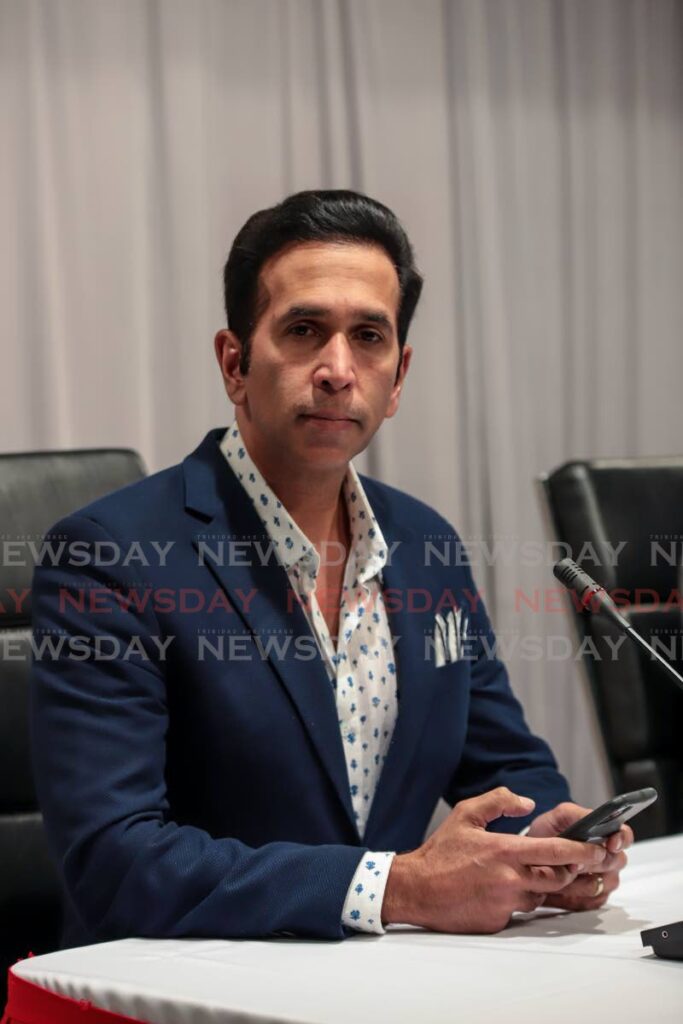Al-Rawi on local government reform: I'm here to put myself out of a job

LOCAL government reform was intended to get more power into the hands of local government, said Minister of Rural Development and Local Government Faris Al-Rawi.
He was speaking during debate in the Senate on Tuesday on the Miscellaneous Provisions (Local Government Reform) Bill, 2020.
Al-Rawi said among the proposed changes were accountability, establishing an audit committee, increased employment and job security, change in hierarchy, digitisation and specified divisions for efficiency. He said with the changes there would also be a restructuring process and consolidation of the current ministry, but assured job security.
“In accepting the role as Minister of Local Government and Rural Development, my gazetted responsibilities included a very important item. My obligation is to wind up the affairs of the Ministry of Rural Development and Local Government.
“In other words, then, I am here to put myself out of the job that is currently cast in the laws that we now manage, take that baton and hand it over to the Ministry of Finance, as it relates to a certain part, much like the Tobago model; and, very importantly to empower the local government structures in the 14 municipal corporations.”
He said it was a fundamental change for local government with nearly 101 amendments which addressed the Municipal Corporations Act, Chap. 25:04; the Burial Grounds Act, Chap. 30:50; the Cremation Act, Chap. 30:51; the Advertisements Regulation Act, Chap. 30:53; the Recreation Grounds and Pastures Act, Chap: 41:01; the Highways Act, Chap. 48:01; the Dogs Act, Chap. 675:4; the Property Taxes Act, Chap. 76:04 and the Planning and Facilitation of Development Act, No. 10 of 2014.
He boasted of a string of consultations on several platforms ranging from digital to face-to-face and said reform was welcomed.
Al-Rawi said financial management was critical and with the proposed establishment of the Secondary Repairs Company, the ministry would be one of the largest employers, of almost 27,000 – 30,000 employees.
“Inside the Municipal Corporations Act we looked at the term and tenure, we are moving from a triennial period to a quadrennial period. We are looking at the terms and conditions in relation to the people who work there and that is the dichotomy between part-time service on an honourarium basis versus full-time service in full-time employment.
“A vast majority of our positions are not currently filled, and this bill treats with the Public Service Commission, Statutory Services Commission and the concept of contracting. How do you represent 70 – 80 per cent of your annual $2.4 billion paying for employment, if the managers for the persons on the ground are not with security of tenure, or filled by people who are in posts for the position and time?”
Al-Rawi said the proceeds from the property tax would be given on a permanent retention basis to the local government bodies for use in their operations.
“The current data that I have on the exercise that I engaged in as minister with responsibility demonstrates that 45 per cent of the corporations' aggregated assets are non-functional.
“How do we decide where to spend? This bill proposes that when we look at the people aspect, it proposes that we have accountability and people to manage.”
Al-Rawi said almost $2.4 billion was spent over the past decade at the ministry, yet the population was unaware of its work.
“If you listen to people speak about local government, there is no real appreciation. Local government has been reduced to where people don’t understand the breadth of work that is involved.”


Comments
"Al-Rawi on local government reform: I’m here to put myself out of a job"